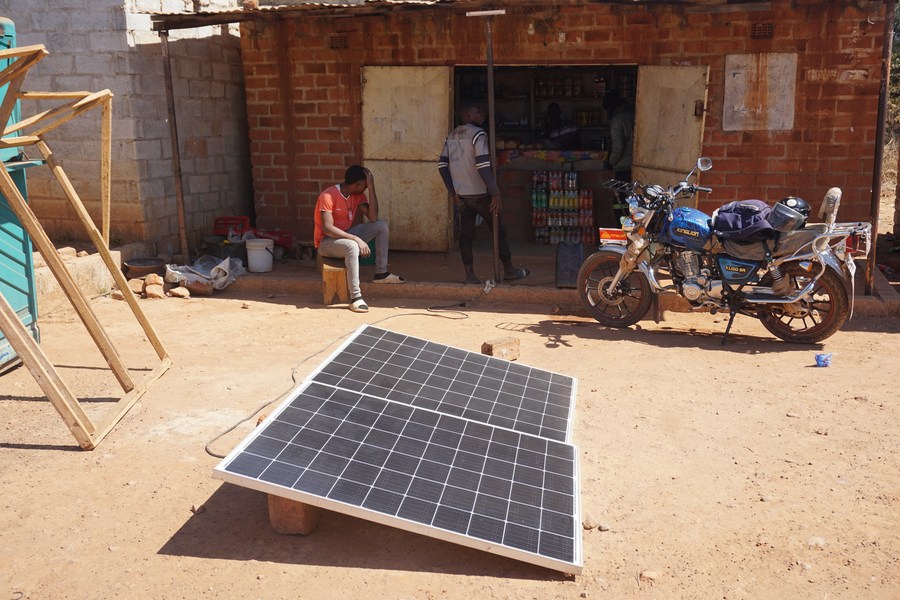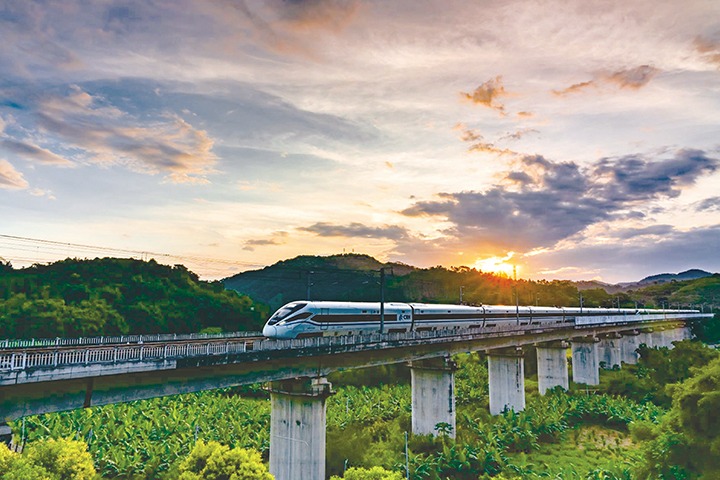Africa sees Belt and Road as precious opportunity
By Antoine Roger Lokongo | China Daily Global | Updated: 2023-09-19 08:55

The China-proposed Belt and Road Initiative continues to drive global development, and through it, the country has helped meet the vital needs of developing nations by cooperating with them to build infrastructure and providing them with financial assistance.
The strategic cooperation between countries of the developing Global South in general, and African countries in particular, will be further strengthened through the initiative.
The perspective that China offers is one that always defends fundamental common values and the common good of humanity. Unlike Western powers, it does not seek hegemony.
The BRI aims to build infrastructure, from highways and railways to ports and power plants, to increase connectivity between Asia, Europe and Africa and to promote trade. It is China's vision that, through this initiative, the world might achieve a common destiny for humanity, development and security.
The people of the world in general and African people in particular see clearly that this initiative presents a precious opportunity for peace and sustainable global development.
Through BRI projects, China has helped build more than 6,000 kilometers of railway, over 6,000 km of highways and more than 80 large power facilities on the African continent.
Infrastructure spurs industrialization, starting with the mechanization of agriculture as the first step in African countries' endeavor to transform their resources to create jobs and markets for their people — locally, regionally and at the continental and international levels.
Handouts from the same people who sow disunity in Africa will never transform the continent. Only strategic and long-term investments in infrastructure can do so, because it is exactly the lack of modern infrastructure that constitutes the bottleneck to development in Africa. The Belt and Road Initiative is here to remove this bottleneck and open the way for Africa's industrialization. Otherwise, globalization will bypass Africa and the world will advance without Africa, Furthermore, without this, Africa would remain only a provider of raw materials to other people.
China's unconditional involvement and massive investments in Africa's infrastructure through the BRI provide a great opportunity not to be missed by Africa in the 21st century. At the same time, China teaches Africans "how to fish instead of giving them a fish".
BRI infrastructure projects provide employment opportunities for the people of the world in general and the African people in particular, since with mobility (the free flow of people and goods) comes opportunities. China is the only true African partner that is ready and willing to share its low-cost technology with Africa.
Every Chinese investment in Africa is loaded with historical meaning, because China understands African countries well. China's experience can be considered a source of wisdom for Africa, and the Belt and Road Initiative is a blessing in the pursuit of common prosperity.
A new era has begun. It is characterized by true multilateralism spearheaded by the Global South under the aegis of China's nonhegemonic leadership, underpinned by the multilateral, broad-based Belt and Road Initiative. Instead of giving sleepless nights to those who continue to display the divisive Cold War mentality or the zero-sum game in international relations, the BRI should be welcomed as a linchpin of win-win cooperation toward the global, common development of mankind.
The result will be common prosperity, common security or stability, shared happiness and progress for mankind based on solidarity and win-win cooperation. Global issues such as climate change and the health crisis of COVID-19 remind us that we should endeavor to work together, and consider the particularities of each and every country in terms of their chosen development path, culture and civilization.
We fall or we rise together. China sincerely and positively supports the Global South in general, and African countries in particular, and thereby contributes to reducing the gap between developed and developing countries. That is why the majority of Africans are convinced that China is not there to exploit them or, in the rhetoric of the West, to "recolonize" their countries.
The author is a professor of international politics and strategies at Joseph Kasa-Vubu University in the Democratic Republic of Congo and a senior visiting research fellow at Peking University's Institute for Global Cooperation and Understanding. The views do not necessarily reflect those of China Daily.
























